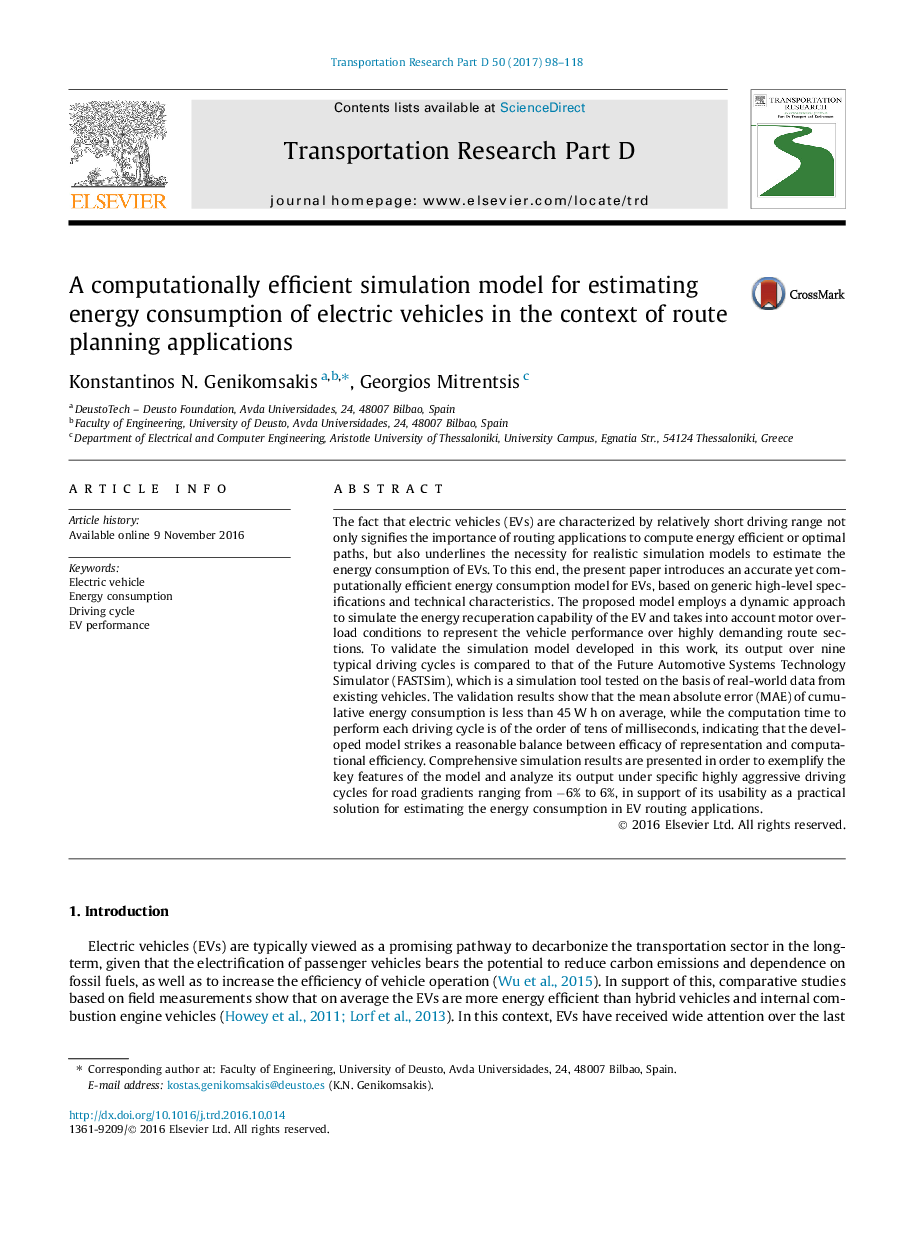| کد مقاله | کد نشریه | سال انتشار | مقاله انگلیسی | نسخه تمام متن |
|---|---|---|---|---|
| 5119458 | 1485873 | 2017 | 21 صفحه PDF | دانلود رایگان |
- An electric vehicle (EV) simulation model to estimate energy consumption is proposed.
- The model development is based on high-level representation of main EV components.
- A dynamic approach is employed to model the energy recuperation capability of the EV.
- The results confirm the good balance between accuracy and computational efficiency.
- The proposed approach is suitable for EV routing applications.
The fact that electric vehicles (EVs) are characterized by relatively short driving range not only signifies the importance of routing applications to compute energy efficient or optimal paths, but also underlines the necessity for realistic simulation models to estimate the energy consumption of EVs. To this end, the present paper introduces an accurate yet computationally efficient energy consumption model for EVs, based on generic high-level specifications and technical characteristics. The proposed model employs a dynamic approach to simulate the energy recuperation capability of the EV and takes into account motor overload conditions to represent the vehicle performance over highly demanding route sections. To validate the simulation model developed in this work, its output over nine typical driving cycles is compared to that of the Future Automotive Systems Technology Simulator (FASTSim), which is a simulation tool tested on the basis of real-world data from existing vehicles. The validation results show that the mean absolute error (MAE) of cumulative energy consumption is less than 45Â WÂ h on average, while the computation time to perform each driving cycle is of the order of tens of milliseconds, indicating that the developed model strikes a reasonable balance between efficacy of representation and computational efficiency. Comprehensive simulation results are presented in order to exemplify the key features of the model and analyze its output under specific highly aggressive driving cycles for road gradients ranging from â6% to 6%, in support of its usability as a practical solution for estimating the energy consumption in EV routing applications.
Journal: Transportation Research Part D: Transport and Environment - Volume 50, January 2017, Pages 98-118
